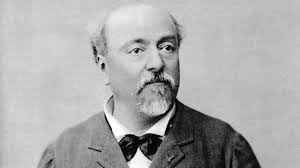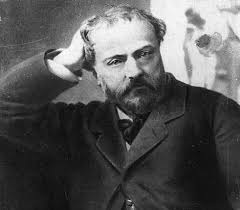Emmanuel Chabrier was a French composer known for his lively and colorful music that often captured the essence of French culture and spirit. Here are 10 interesting facts about this influential figure:
- Early Life: Born on January 18, 1841, in Ambert, France, Chabrier showed musical talent from a young age. Despite his interest in music, he initially pursued a career in law before devoting himself entirely to composition.
- Versatile Composer: Chabrier’s compositions span various genres, including opera, orchestral works, piano music, and songs. He demonstrated a remarkable versatility in his ability to compose in different styles.
- España: One of Chabrier’s most famous compositions is the orchestral rhapsody “España,” inspired by his travels to Spain. The piece brilliantly captures the lively rhythms and colorful melodies of Spanish folk music, earning it enduring popularity.
- Operatic Success: Chabrier’s operatic works include “L’étoile” and “Gwendoline.” Though not as frequently performed today as some of his other works, they were well-received during his lifetime and showcase his skillful orchestration and melodic invention.
- Influence on Other Composers: Chabrier’s music had a significant influence on later composers, including Maurice Ravel and Claude Debussy. His use of colorful orchestration and harmonic adventurousness paved the way for the development of impressionism in music.
- Friendship with Impressionist Painters: Chabrier was close friends with several prominent impressionist painters, including Édouard Manet and Claude Monet. He shared their appreciation for capturing fleeting moments and sensations, which is reflected in his music.
- Sense of Humor: Chabrier had a keen sense of humor, evident in many of his compositions. He often infused his music with wit and whimsy, creating playful melodies and unexpected harmonic twists.
- “Joyeuse Marche”: Another well-known piece by Chabrier is the “Joyeuse Marche,” a lively and exuberant orchestral march. Its infectious energy and catchy melodies make it a favorite among audiences and performers alike.
- Health Challenges: Throughout his life, Chabrier struggled with health issues, including a heart condition. Despite these challenges, he remained dedicated to his musical pursuits, composing some of his most beloved works even during periods of illness.
- Legacy: Chabrier’s music continues to be celebrated for its charm, wit, and inventive orchestration. While he may not be as widely recognized as some of his contemporaries, his contributions to French music are significant, and his works remain cherished by musicians and audiences around the world.
Emmanuel Chabrier’s legacy endures as a testament to his creativity, humor, and passion for music, ensuring that his compositions continue to delight and inspire listeners for generations to come.


Comments are closed